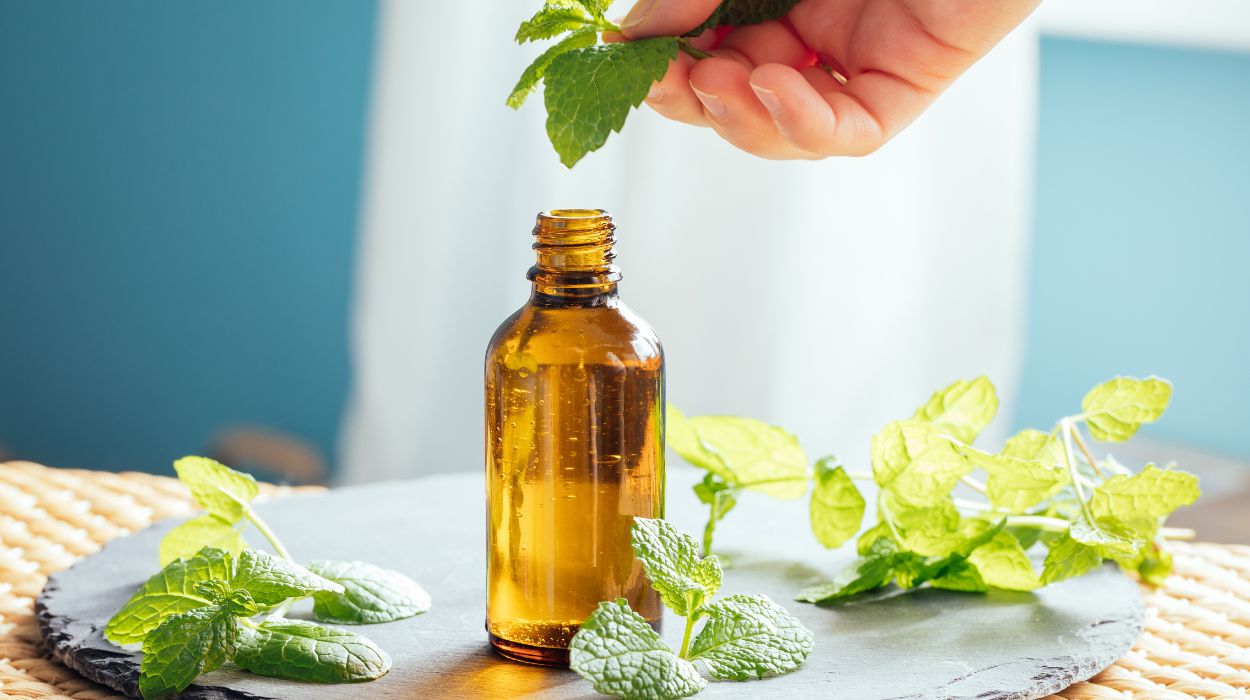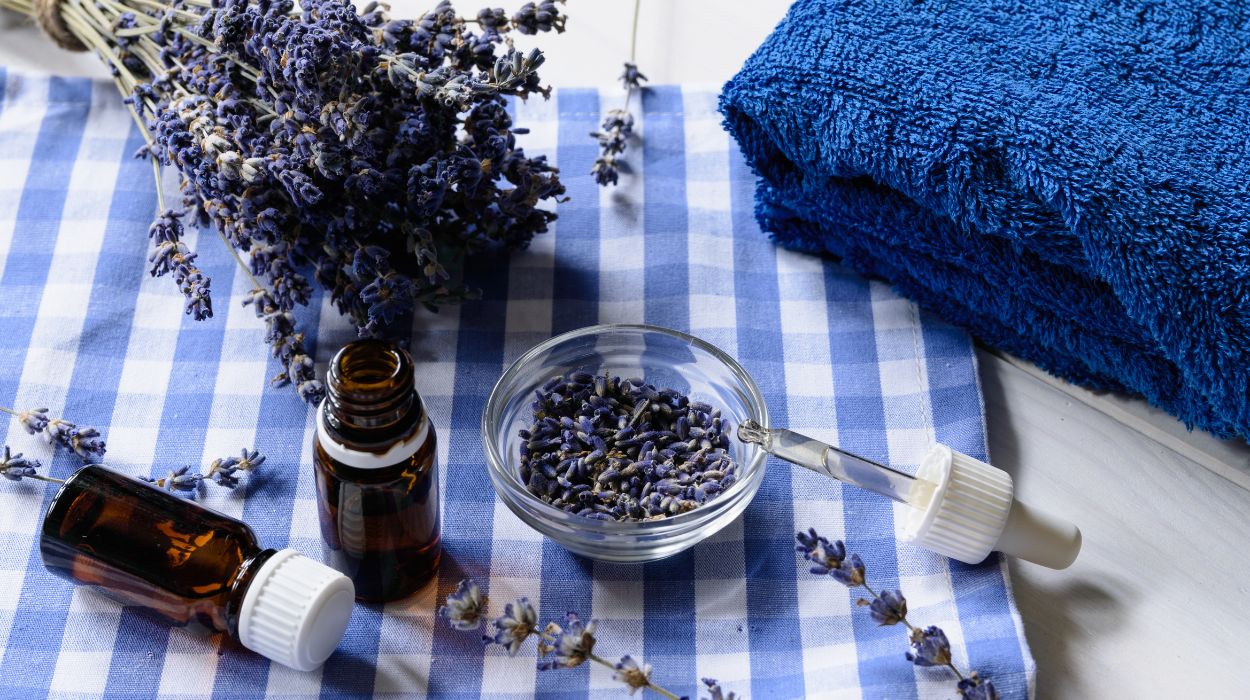 Expert's opinion
Expert's opinion
Expert's opinion
The article is a subjective view on this topic written by writers specializing in medical writing.
It may reflect on a personal journey surrounding struggles with an illness or medical condition, involve product comparisons, diet considerations, or other health-related opinions.
Although the view is entirely that of the writer, it is based on academic experiences and scientific research they have conducted; it is fact-checked by a team of degreed medical experts, and validated by sources attached to the article.
The numbers in parenthesis (1,2,3) will take you to clickable links to related scientific papers.
Neem Oil For Hair: Benefits & How To Use For Hair Growth In 2024

Pure neem oil is gaining popularity as a hair growth supplement, competing with other top-tier natural remedies. But are the alleged benefits of hair neem oil true?
For over 2000 years, neem oil has been used as a homeopathic remedy. However recent research has revealed its tremendous potential for healthy hair. Currently, it’s used in hair care products for fungal infections and hair conditioning issues.
Read on to learn how neem oil works for hair restoration, as well as potential side effects and alternatives.
Key Takeaway
- Neem oil is a vegetable oil and natural pesticide derived from the seeds of the neem tree.
- The benefits for hair of neem oil include eliminating dandruff, promoting antioxidant activities, eliminating head lice, thickening the hair, and so on.
- Carrier oils such as coconut oil, olive oil, and jojoba oil can be used to dilute pure neem oil.
- People with sensitive skin may experience varying degrees of irritation.
- Other oils good for hair like tea tree oil, peppermint oil, cedarwood oil, and so on.
Neem Oil For Hair: What Is It?
Neem oil, also known as Margosa, is a vegetable oil and natural pesticide derived from the seeds of the neem tree. The neem tree is native to India but has spread to other tropical regions. Neem oil is yellow-brown in color, bitter in flavor, and smells like garlic or sulfur.
Powder, granules, dust, and emulsifiable concentrates can be made from neem oil. It’s found in various household products, including shampoos, soaps, toothpaste, and cosmetics, where it is used primarily to prevent hair loss.
Is Neem Oil Good For Hair?
Yes. Thanks to its wide range of nutrients, including fatty acids, vitamin E, triglycerides, antioxidants, limonoids, and calcium, neem oil is great for hair health. A few drops of neem oil can:
- Nourish the scalp with vitamin E.
- Prevent hair thinning with fatty acids.
- Strengthen the immune system with antioxidants for better scalp health.
Neem Oil Benefits For Hair
Eliminates Dandruff
Poor hair maintenance habits can lead to dandruff, a common hair issue. What works for someone else might not work for you because different hair types respond differently to hair products. Poor hair care encourages the development of fungi, which results in dandruff.
The main fungi that cause dandruff are candida and Malassezia, both susceptible to dandruff neem oil’s antifungal properties. Hair neem oil reduces scalp itching and irritation by counteracting the effects of fungi on the scalp. Additionally, it balances the scalp’s pH level, sustaining optimal scalp health.
Promotes Antioxidant Activities
Neem oil for hair growth has powerful antioxidant properties that boost scalp immunity. According to one study’s findings, neem oil is effective in disease prevention[1] and treatment. It increases antioxidant activity, decreases bacterial activity, and modulates genetic pathways.
Eliminates Head Lice
Lice infestations are common public health problems[2] in preschool and elementary-age children. Once they infest your scalp, they can spread quickly. Head lice itch your scalp, causing discomfort. You can massage neem oil into your scalp before going to bed, then wash it away with the dead parasites when you wake up.
The concentration of neem oil is an important consideration when using it as an insecticide. By neutralizing their eggs, a few drops of neem oil kill head lice and prevent further reproduction.
Thickens The Hair
Stress, poor nutrition, and improper use of hair products can all cause hair loss. Neem oil promotes hair follicle regeneration, which increases hair thickness.
Neem oil is high in essential fatty acids required for hair development. It also prevents excessive sebum production, which helps to prevent hair thinning and stunted growth. Neem oil feeds your hair follicles, promoting growth and reducing hair loss.
Accelerates Growth
Neem oil hair treatment promotes hair follicle regeneration. Medication side effects, stress, UV rays, or pollution can all cause stunted hair growth.
Neem oil promotes blood circulation, ensuring that oxygen and nutrients reach every part of the scalp. It also has anti-inflammatory properties that protect the hair follicles and antibiotic properties that keep microorganisms at bay.
To activate these properties, gently massage neem oil into the scalp.
Acts As A Hair Conditioner
A regular shampoo, hair mask, or moisturizing oil can help with dry hair. Still, you risk experiencing other side effects if the formulation contains hair-harming chemicals. Neem oil is a natural hair conditioner that provides numerous nutritional benefits while avoiding the side effects associated with synthetic hair solutions. Mix neem oil with coconut oil or mustard carrier oil to improve the results.
Before choosing mustard carrier oil, ensure you have no allergies to Brassica vegetables, such as broccoli, cauliflower, or cabbage — cross-reaction may occur topically, causing inflammation and itching.
Prevents Premature Greying
Hair greying can result from stress, illness, vitamin B12 deficiency, aging, and genetics. By nourishing the scalp with growth-promoting components and preventing infections through antioxidants and anti-parasitic properties, neem oil can help prevent premature greying.
Treats And Prevents Scalp Infections
By moistening the scalp and introducing anti-fungal properties, neem oil provides a multi-layered approach to scalp infections.
Dryness exposes your scalp to infections. As a result, by conditioning the hair and moistening the scalp, neem oil can help prevent various hair problems. Neem oil has anti-inflammatory, antibacterial, antiviral, and antiseptic properties, as well as the ability to balance the pH of your scalp.
In a study based on human trials, a mixture of neem oil and coconut carrier oil was found effective in eliminating tungiasis,[3] a disease caused by the female sand flea that burrows into skin cells. Neem oil was able to eliminate tungiasis infestations in a week by hastening flea aging and inhibiting inflammation.
How To Use Neem Oil For Hair
Carrier oils such as coconut oil, olive oil, and jojoba oil can be used to dilute pure neem oil. Your hair’s strength and texture determine the degree of dilution. People with fine hair should only apply diluted neem oil.
Neem oil can be processed in various forms, allowing you to take it orally and topically. However, user feedback suggests that topical oil application is more effective.
Topical application allows nutrients to enter the hair follicles more quickly, resulting in faster results. In addition, topical application is less dangerous than ingestion.
If you decide to combine oils, we recommend beginning with a single application method and observing the effects separately. However, a healthcare provider can always point you in the right direction if you have any concerns.
A key precaution when using neem oil is to avoid combining it with other irritants or hair supplements, as the components may react negatively or increase the irritation. Effectively using neem oil entails the following steps:
- Apply neem oil to the scalp and gently massage it.
- Allow it to work for one to two hours.
- Use shampoo to clean it.
- To avoid irritation, thoroughly rinse your scalp.
Neem Oil Side Effects & Safety Precautions
Applying diluted neem oil formulated for hair conditioning has no serious side effects. People with sensitive skin, on the other hand, may experience varying degrees of irritation. Fortunately, neem oil can be made less irritating by diluting it.
Apply neem oil to a small skin area and observe the reaction before applying it to the scalp. Individuals with skin conditions such as eczema should avoid neem oil due to its itchy effect.
Other Oils Good For Hair
Tea Tree Oil
This is a hair cleanser with antimicrobial and antibacterial properties. A 5% tea tree oil cleanser has been shown in studies to be effective in treating dandruff[4] with no serious side effects. Tea tree oil inhibits the Pityrosporum ovale yeast[5] associated with dandruff.
Peppermint Oil

Oil of peppermint, which is widely used as a carminative, gastric stimulant, skin conditioner, and fragrance component, has numerous benefits, including hair health. Compared to Minoxidil, Jojoba oil, and saline, Peppermint had the greatest effect on hair, increasing follicle number and depth, and dermal thickness.
Cedarwood Oil
This supplement controls oil production on the scalp to prevent hair loss. It has antifungal and antibacterial properties that help prevent hair conditions like dandruff and hair loss. It has been discovered to be an effective treatment for alopecia areata,[6] an auto-immune disease that attacks hair follicles, resulting in hair loss.
Lavender Essential Oil

This oil, a common component in hair products, has been shown in studies to have significant advantages for hair health.[7] It can improve follicle depth and dermal layer thickness. It also significantly reduces mast cells, which are involved in inflammation.
Rosemary Oil
Rosemary oil was found to be as effective in reducing scalp irritation as Minoxidil in a study examining the effects of rosemary oil as a treatment for androgenetic alopecia.[8]
Final Thoughts
Organic neem oil is a versatile natural supplement that can have varying degrees of health benefits. On the question of how to make neem oil for hair growth work for you, it’s crucial that you only purchase from reputable vendors who have experience in a field related to medicine and have adequate resources for neem seed extract preparation.
Nevertheless, depending on the ingredients present and the degree of dilution, neem oil has other uses. This includes applications for skin care and as an insecticide useful in public health, such as for the treatment of lice infestations.
In the end, applying neem oil regularly to your hair can help boost strength, shine, and overall scalp health.
+ 8 sources
Health Canal avoids using tertiary references. We have strict sourcing guidelines and rely on peer-reviewed studies, academic researches from medical associations and institutions. To ensure the accuracy of articles in Health Canal, you can read more about the editorial process here
- Alzohairy, M.A. (2016). Therapeutics Role ofAzadirachta indica(Neem) and Their Active Constituents in Diseases Prevention and Treatment. Evidence-Based Complementary and Alternative Medicine, [online] 2016, pp.1–11. doi:https://doi.org/10.1155/2016/7382506.
- Anon, (2023). CDC – Lice – Head Lice – Epidemiology & Risk Factors. [online] Available at: https://www.cdc.gov/parasites/lice/head/epi.html
- Elson, L., Wright, K., Swift, J. and Feldmeier, H. (2017). Control of Tungiasis in Absence of a Roadmap: Grassroots and Global Approaches. Tropical Medicine and Infectious Disease, [online] 2(3), p.33. doi:https://doi.org/10.3390/tropicalmed2030033.
- Journal of Essential Oil Research. (2017). Tea tree oil: a promising essential oil. [online] Available at: https://www.tandfonline.com/doi/abs/10.1080/10412905.2016.1232665
- Kasujja, I. (2021). Critical Evaluation of <i>Melaleuca alternifolia</i> : A Review of the Phytochemical Profile, Pharmacological Attributes and Medicinal Properties in the Botanical, Human and Global Perspectives. Open Journal of Medicinal Chemistry, [online] 11(01), pp.1–15. doi:https://doi.org/10.4236/ojmc.2021.111001.
- Ezekwe, N., King, M. and Hollinger, J.C. (2020). The Use of Natural Ingredients in the Treatment of Alopecias with an Emphasis on Central Centrifugal Cicatricial Alopecia: A Systematic Review. The Journal of clinical and aesthetic dermatology, [online] 13(8), pp.23–27. Available at: https://www.ncbi.nlm.nih.gov/pmc/articles/PMC7595365/
- Lee, B.H., Lee, J.S. and Kim, Y.C. (2016). Hair Growth-Promoting Effects of Lavender Oil in C57BL/6 Mice. Toxicological Research, [online] 32(2), pp.103–108. doi:https://doi.org/10.5487/tr.2016.32.2.103.
- Panahi (2015). Rosemary oil vs minoxidil 2% for the treatment of androgenetic alopecia: a randomized comparative trial. Skinmed, [online] 13(1). Available at: https://pubmed.ncbi.nlm.nih.gov/25842469/



